
Odza: A Tranquil Retreat in the Bustling Heart of Yaoundé
Odza is a charming neighborhood nestled in the southern part of Yaoundé, Cameroon. Known for its serene atmosphere, this area offers a refreshing escape from the hustle and bustle of the city center. Visitors will find themselves enchanted by the lush greenery and the harmonious blend of modernity and tradition that defines Odza. Strolling through Odza, you'll discover a variety of local markets and shops where you can purchase handmade crafts, traditional garments, and delicious local delicacies. The neighborhood's friendly residents are always eager to share their culture and stories, making your visit both educational and enjoyable. Odza is also home to several beautiful parks and recreational areas, perfect for a leisurely afternoon. Whether you're looking to explore the local flora and fauna or simply relax with a book, these green spaces are a haven for nature lovers. Additionally, the neighborhood's proximity to Yaoundé's major attractions ensures that you're never far from the action, while still enjoying the peace and quiet of a residential area.
Local tips in Odza
- Visit the local markets early in the morning for the freshest produce and unique handmade crafts.
- Wear comfortable walking shoes as the neighborhood's best attractions are best explored on foot.
- Don't miss the beautiful parks for a relaxing afternoon surrounded by nature.
- Engage with the locals to learn more about the culture and history of the area.
- Plan your visit during the dry season (November to February) for the best weather conditions.
Odza: A Tranquil Retreat in the Bustling Heart of Yaoundé
Odza is a charming neighborhood nestled in the southern part of Yaoundé, Cameroon. Known for its serene atmosphere, this area offers a refreshing escape from the hustle and bustle of the city center. Visitors will find themselves enchanted by the lush greenery and the harmonious blend of modernity and tradition that defines Odza. Strolling through Odza, you'll discover a variety of local markets and shops where you can purchase handmade crafts, traditional garments, and delicious local delicacies. The neighborhood's friendly residents are always eager to share their culture and stories, making your visit both educational and enjoyable. Odza is also home to several beautiful parks and recreational areas, perfect for a leisurely afternoon. Whether you're looking to explore the local flora and fauna or simply relax with a book, these green spaces are a haven for nature lovers. Additionally, the neighborhood's proximity to Yaoundé's major attractions ensures that you're never far from the action, while still enjoying the peace and quiet of a residential area.
Iconic landmarks you can’t miss
Cameroon Reunification Monument
A landmark in Yaoundé symbolizing Cameroon's reunification and cultural heritage, offering a place for reflection and appreciation of national unity.
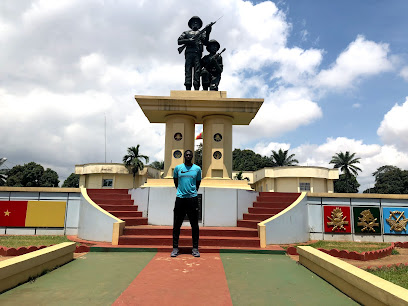
Entrée Palais des Congrée
A landmark conference center in Yaoundé offering panoramic views and hosting major national and international events.
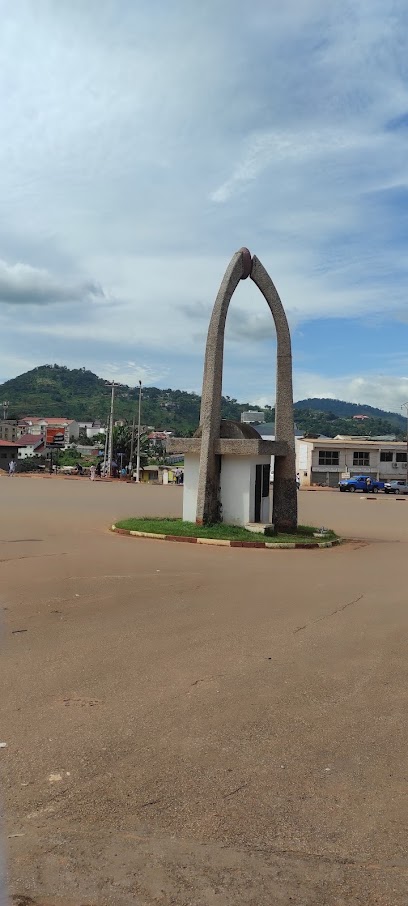
Statue of Charles Atangana
Discover the Statue of Charles Atangana in Yaoundé, a historical landmark honoring a key figure in Cameroon's colonial past.
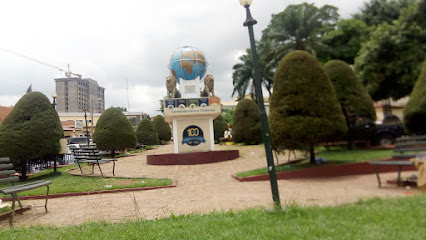
Monument of Colonel Leclerc
A historical landmark in Yaoundé commemorating Colonel Leclerc and Cameroon's role in the Free French movement during World War II.
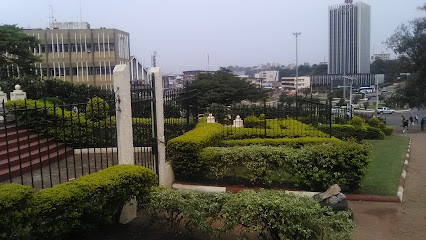
Independence Square
Discover Cameroon's history and culture at Independence Square in Yaoundé, a vibrant landmark with monuments, greenery, and a lively atmosphere.
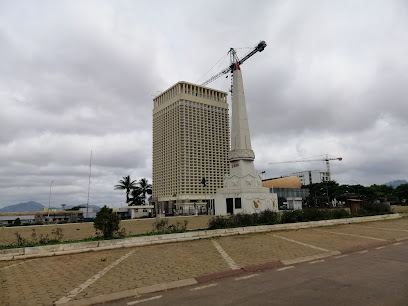
Monument j'aime mon pays
Discover the heart of Cameroon at the Monument J'aime Mon Pays, a symbol of unity and national pride in Yaoundé.
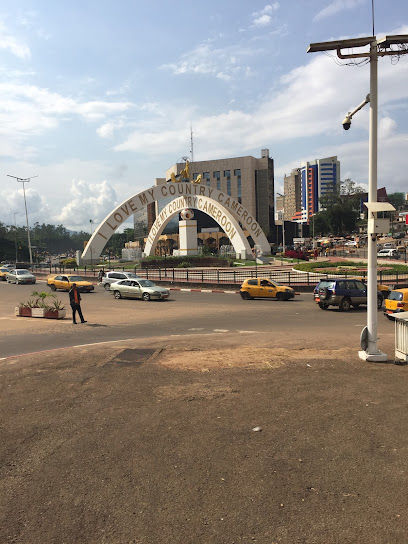
Odza ,Plaque oyack
Explore Odza, Plaque Oyack in Yaoundé, a historical landmark reflecting Cameroon's cultural heritage and offering a serene glimpse into the past.

Monument Patriote
A tribute to Cameroon's fight for independence, the Monument Patriote stands as a symbol of national pride in the heart of Yaoundé.
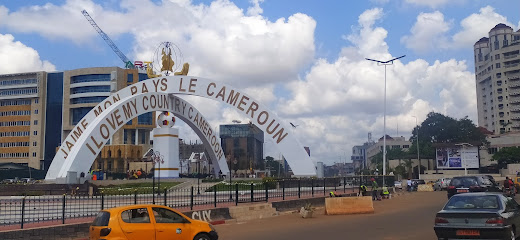
Odza
Explore Odza in Yaoundé: Discover Cameroon's agricultural heartland, engage with local farmers, and immerse yourself in authentic culture.
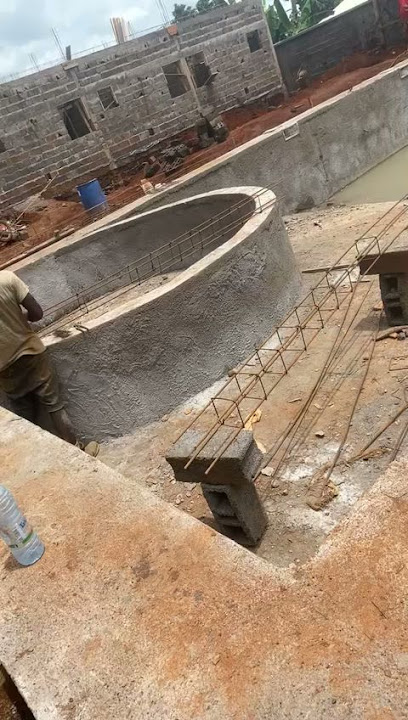
MONUMENTS EN HOMMAGE AUX SOLDATS MORTS POUR LA PATRIE
A serene park in Yaoundé honoring the soldiers who died for Cameroon, offering a space for reflection and remembrance.
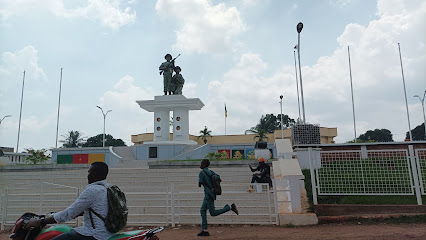
Unmissable attractions to see
National Museum
Discover the cultural essence of Cameroon at the National Museum in Yaoundé, showcasing rich heritage and artistic diversity.
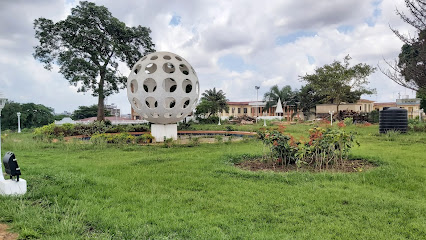
Mvog-Betsi Botanical Zoological Garden
Explore the lush landscapes and diverse wildlife at Mvog-Betsi Botanical Zoological Garden in Yaoundé, a serene retreat for nature lovers.
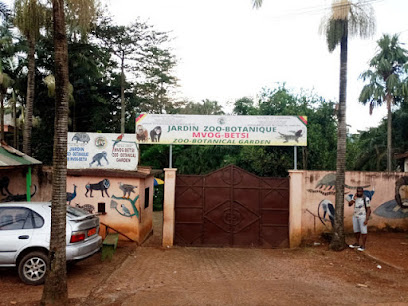
Cameroon Reunification Monument
Discover the rich history of Cameroon at the iconic Reunification Monument in Yaoundé, a symbol of unity and cultural pride.
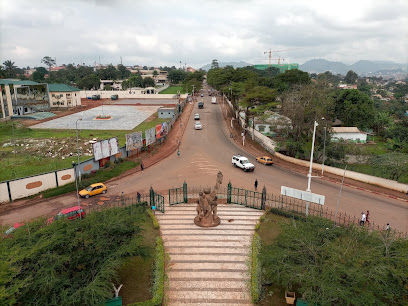
Statue of Charles Atangana
Explore the Statue of Charles Atangana in Yaoundé, a historical landmark celebrating Cameroon's cultural heritage amidst serene surroundings.
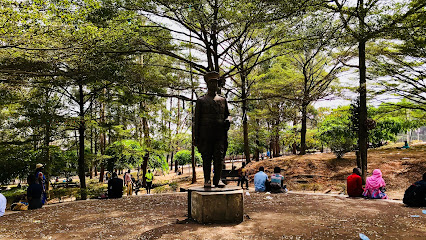
Musée Ethnographique et d'Histoire des Peuples de la Forêt d'Afrique Centrale
Explore the diverse cultures and histories of Central Africa at the Musée Ethnographique et d'Histoire des Peuples de la Forêt d'Afrique Centrale in Yaoundé.
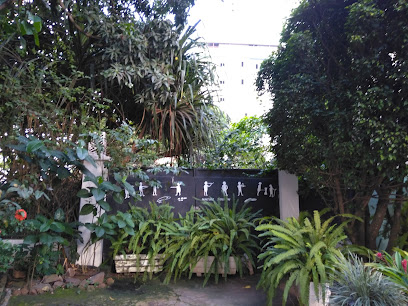
Blackitude Museum
Discover the vibrant culture of Cameroon at Blackitude Museum, where art and history come alive in the heart of Yaoundé.
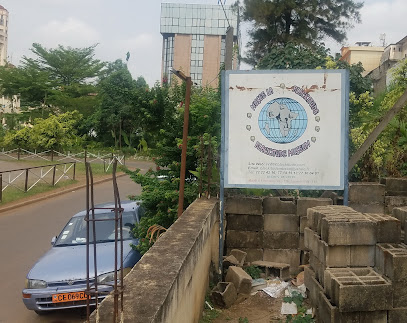
I love my country Cameroon round about
Explore the vibrant 'I Love My Country' roundabout in Yaoundé, a celebration of Cameroonian culture and community that every tourist shouldn't miss.
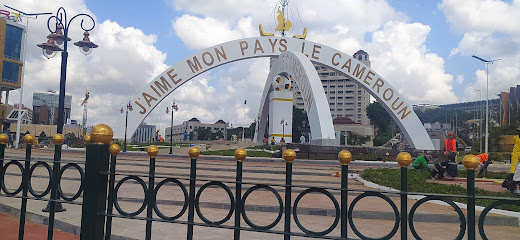
JYS GARDEN
Explore the lush beauty and tranquility of JYS Garden in Yaoundé, a perfect retreat for nature lovers and families alike.
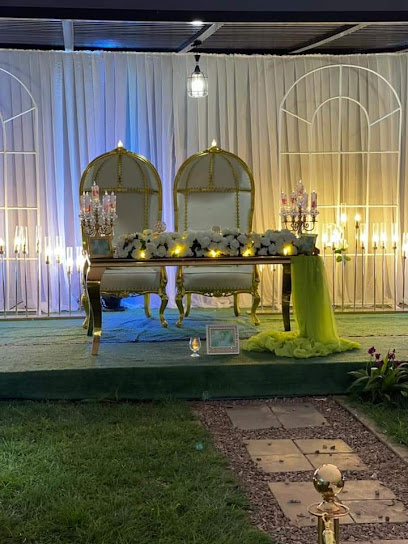
Independence Square
Discover Independence Square in Yaoundé, a vibrant historical landmark that embodies the spirit of Cameroon amidst lush greenery and cultural richness.
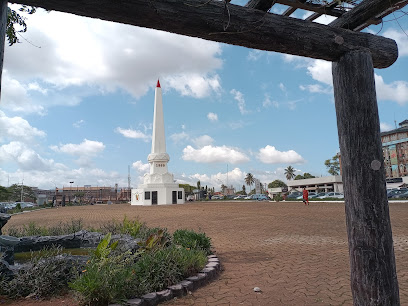
Manèges de Ya-Fe
Discover the magic of Manèges de Ya-Fe, an amusement park ride in Yaoundé, where joy meets adventure for all ages.
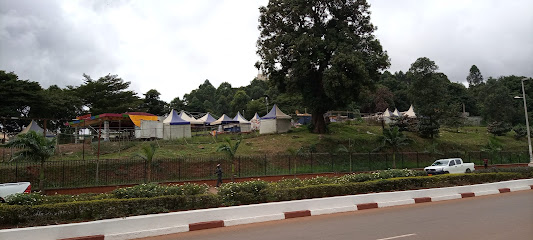
Odza ,Plaque oyack
Discover the rich history and stunning beauty of Odza, a significant historical landmark in Yaoundé, Cameroon, perfect for curious travelers and culture enthusiasts.

Monument j'aime mon pays
Discover the Monument j'aime mon pays in Yaoundé, a symbol of Cameroon's pride, offering rich history, stunning views, and cultural significance.
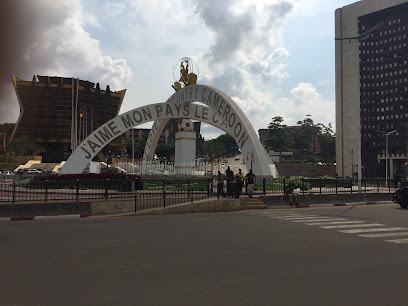
Oyack-odza
Discover the beauty of Oyack-odza, a premier hiking area in Yaoundé, offering stunning trails and breathtaking natural landscapes for all adventure seekers.
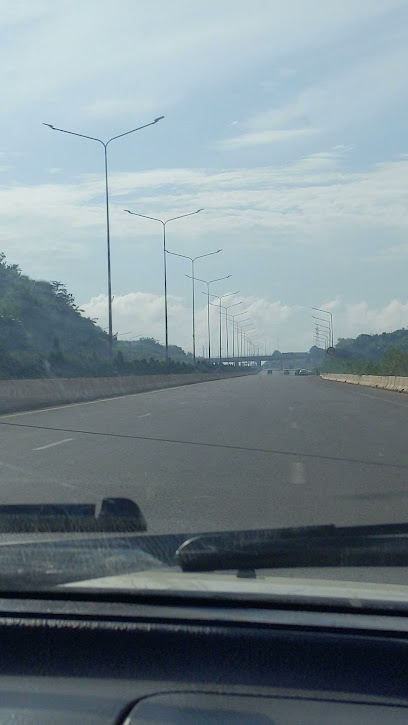
Essential places to dine
The Famous
Experience exquisite dining at The Famous in Yaoundé – where local flavors meet international culinary excellence.
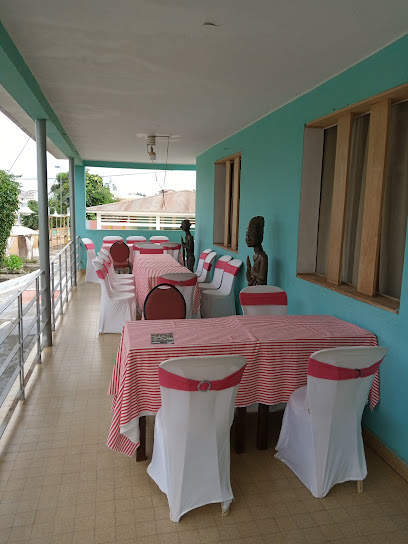
Malaïka Restau Bar
Discover authentic Cameroonian flavors at Malaïka Restau Bar in Yaoundé's lively Nlongkak district.
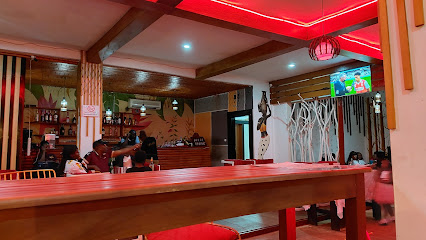
AFRICAN FOOD BY EMY
Experience authentic African cuisine at its finest in Yaoundé's vibrant eatery - African Food by Emy.
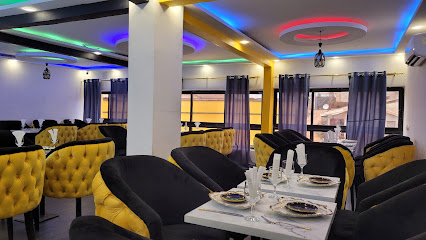
Big up food
Discover authentic Cameroonian cuisine at Big Up Food in Yaoundé – where every dish tells a story.
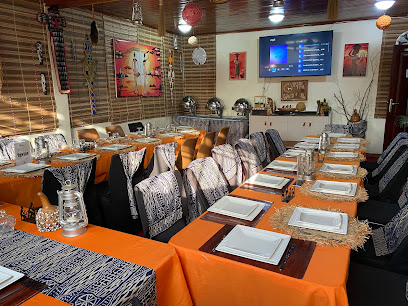
Restaurant ML
Discover exceptional flavors at Restaurant ML, where Cameroonian traditions meet modern culinary artistry in Yaoundé.
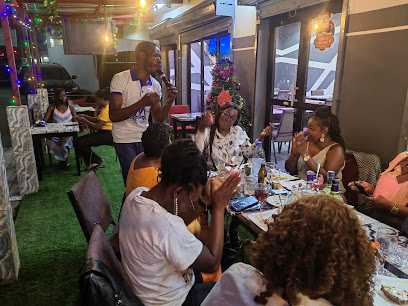
Yummy Restaurant237
Savor authentic African flavors at Yummy Restaurant237 in Yaoundé, where every dish tells a story of local tradition.
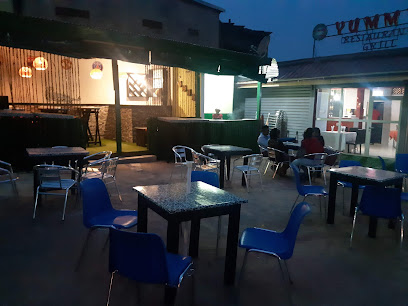
Restaurant le Manek
Experience authentic Cameroonian flavors at Restaurant le Manek in Yaoundé's Quartier Manguissa.
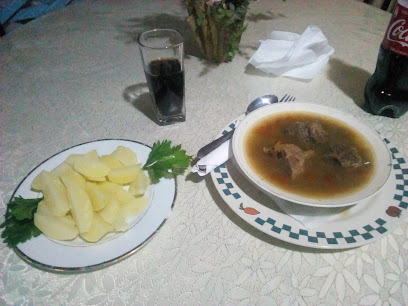
KUDIA MBOTE
Discover authentic Cameroonian flavors at KUDIA MBOTE in Yaoundé – where every meal is a celebration of culture.
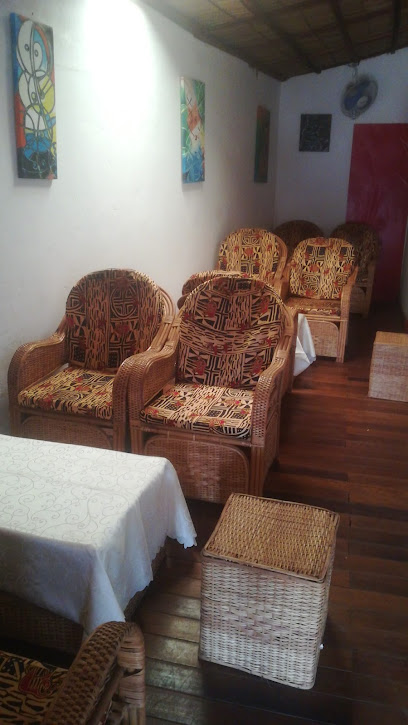
Noma Restaurant cafe
Experience the vibrant flavors of Cameroon at Noma Restaurant Cafe in Yaoundé – where local traditions meet modern culinary art.
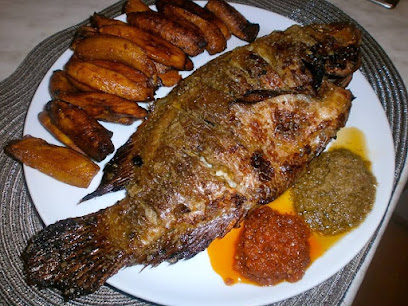
Bi's Restaurant - Etoa Meki
Experience authentic Cameroonian cuisine at Bi's Restaurant in Yaoundé - where every dish tells a story.

Markets, malls and hidden boutiques
Chez Harris, Etoa Meki, Yaoundé
Explore the charm of Chez Harris, a second-hand store in Etoa Meki, Yaoundé, offering unique treasures and a glimpse into local culture.
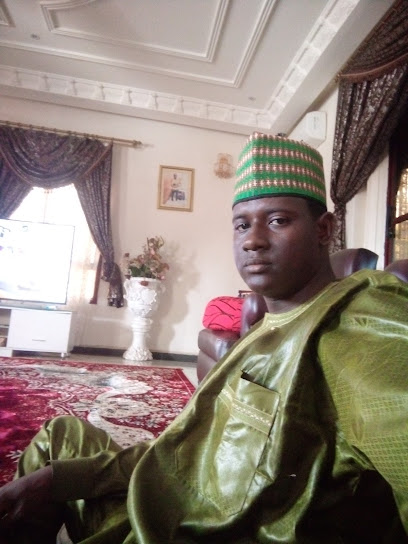
Uni-Shop
Explore the stylish world of Uni-Shop in Yaoundé, where unique fashion accessories meet local craftsmanship, perfect for every trendsetter.

YMAK Distribution Boutique En Ligne, Yaoundé
Experience the vibrant fashion scene at YMAK Distribution Boutique En Ligne in Yaoundé, offering unique styles and local designer pieces.
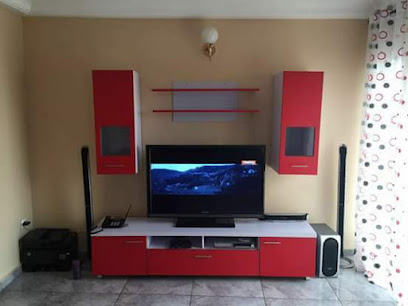
Berto Chassures
Explore Berto Chassures in Yaoundé for a unique blend of local fashion and contemporary style, perfect for every traveler.
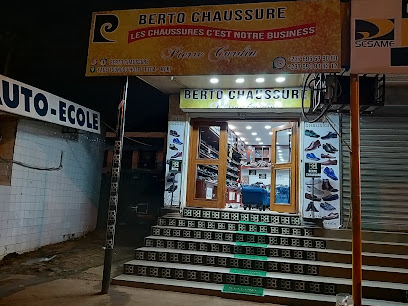
Free spirit
Explore Free Spirit in Yaoundé, a vibrant fashion accessories store offering unique items that reflect local culture and contemporary trends.
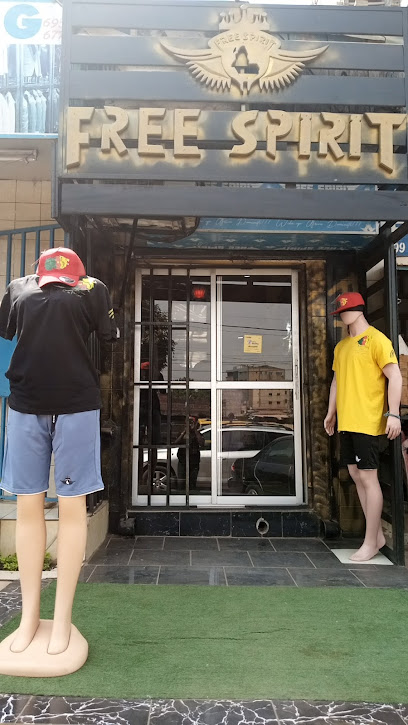
One Store
Discover custom t-shirts that celebrate the vibrant culture of Yaoundé at One Store, your go-to destination for unique fashion.

Trust Prêt à porter de luxe by Ernesto Di Lyono
Explore the elegance of luxury gifts at Trust Prêt à porter de luxe by Ernesto Di Lyono in Yaoundé, where culture meets sophistication.

LA FIRST
Discover the exquisite world of fragrances at LA FIRST Perfume Store in Yaoundé, where every scent tells a unique story.

Boutique awa
Explore Boutique Awa in Yaoundé for unique Cameroonian crafts, fashion, and souvenirs that celebrate local culture and artistry.
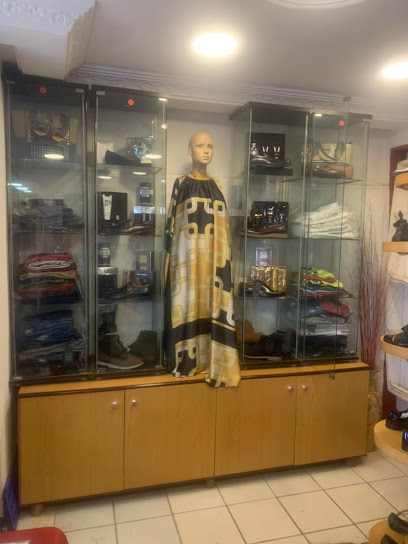
Mefre Tafre Rodrigue
Experience the vibrant heart of Yaoundé at Mefre Tafre Rodrigue, a bustling shopping mall blending local culture with modern retail.

Essential bars & hidden hideouts
Le Penalty Lounge
Experience the vibrant nightlife of Yaoundé at Le Penalty Lounge, a premier disco club and lounge offering live music and an energetic atmosphere.
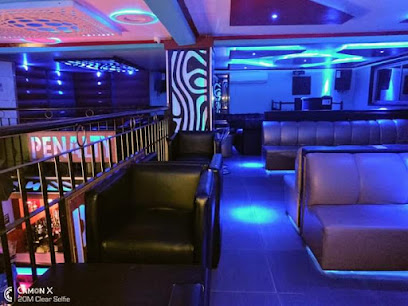
Bliss restaurant bar lounge
Discover a blend of local and international flavors at Bliss Restaurant Bar Lounge, where every meal is a celebration of Cameroonian hospitality.
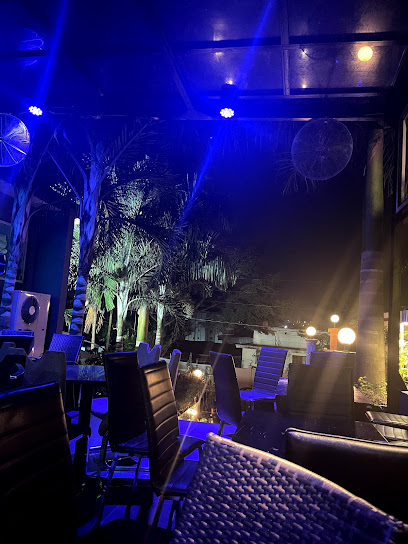
The Rooftop Yaoundé
Discover breathtaking views and vibrant nightlife at The Rooftop Yaoundé, the ultimate bar experience in Cameroon’s capital.
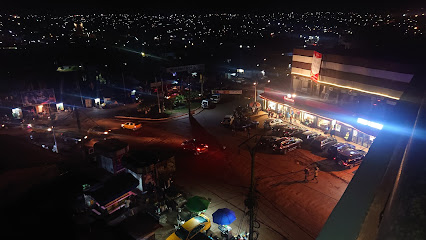
Mossad Odza
Discover the vibrant nightlife of Yaoundé at Mossad Odza, a lively bar offering local drinks in a welcoming atmosphere.
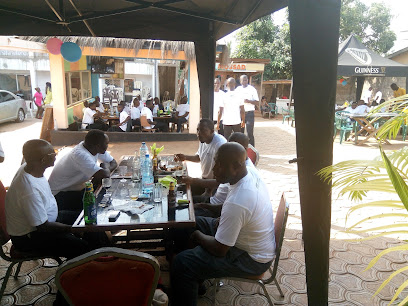
Panoramique Bar & Lounge
Discover the ultimate blend of luxury and entertainment at Panoramique Bar & Lounge, Yaoundé's premier destination for stunning views and vibrant nightlife.
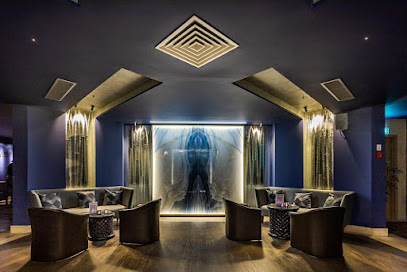
Ô Baobab Grill - Odza
Experience the authentic flavors of Cameroon at Ô Baobab Grill, a vibrant barbecue restaurant and bar in the heart of Yaoundé.
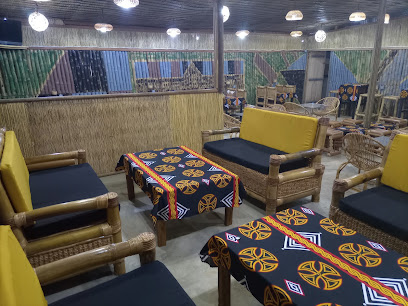
Au Barjot
Au Barjot: A lively lounge in Yaoundé where music, cocktails, and camaraderie create unforgettable memories.
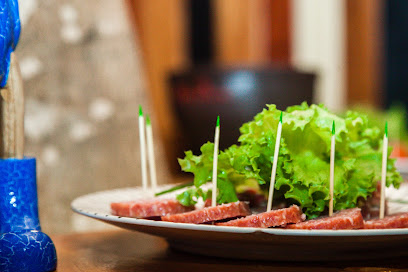
Chill Out Bar & Grill
Unwind and savor delicious grilled delights at Chill Out Bar & Grill, the ultimate relaxation spot in Yaoundé for tourists and locals alike.

COMPLEXE BEAUFILS ODZA (SNACK BAR RESTO HÉBERGEMENT)
Discover the lively atmosphere of Complexe Beaufils Odza, a premier lounge in Yaoundé offering delightful cuisine and vibrant nightlife.
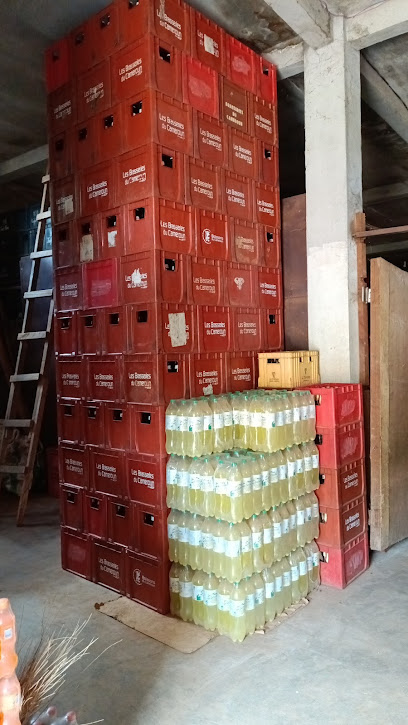
Le Bali
Experience the essence of Yaoundé at Le Bali Lounge – a perfect blend of comfort, culture, and local flavors.
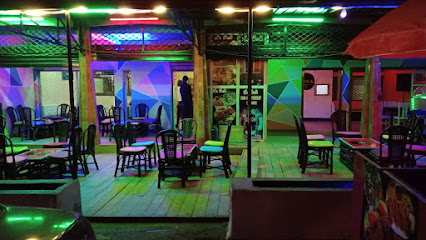
Local Phrases
-
- HelloMbolo
[mboh-loh] - GoodbyeAdieu
[ah-dyuh] - YesEya
[ay-yah] - NoNde
[nn-deh] - Please/You're welcomePlaisir
[plai-zeer] - Thank youMèsi
[may-see] - Excuse me/SorryPardon
[par-dohn] - How are you?Na loba?
[nah loh-bah] - Fine. And you?Na loba. Na wè?
[nah loh-bah. nah way] - Do you speak English?Na wuɗi hɨ mbiŋɨlɨ ŋɨlɨŋga?
[nah woo-dee heh mbin-gil-lee ngeel-lee-ngah] - I don't understandHaɗi mbiŋɨlɨ ŋɨlɨŋga
[hah-dee mbin-gil-lee ngeel-lee-ngah]
- HelloMbolo
-
- I'd like to see the menu, pleaseNa hɨla wuɗi hɨ tarif, a
[nah hee-lah woo-dee hee tah-rif, ah] - I don't eat meatHaɗi hɨne mbiŋɨlɨ tɨŋgɨ
[hah-dee heh-neh mbin-gil-lee teeng-gee] - Cheers!A la santé!
[ah lah sahn-tay] - I would like to pay, pleaseNa hɨla wuɗi hɨ tɨmɨ, a
[nah hee-lah woo-dee hee teem-ee, ah]
- I'd like to see the menu, pleaseNa hɨla wuɗi hɨ tarif, a
-
- Help!Boh!
[boh!] - Go away!Sɨkɨ nchɨ!
[see-kee nchee!] - Call the Police!Na wuɗi hɨ ɗɨlɨsɨ?
[nah woo-dee heh deel-lee-see?] - Call a doctor!Na wuɗi hɨ ndɨta?
[nah woo-dee heh ndee-tah?] - I'm lostHaɗi hiŋgɨ
[hah-dee heeng-gee] - I'm illHaɗi mɨndɨ
[hah-dee meen-dee]
- Help!Boh!
-
- I'd like to buy...Na hɨla wuɗi hɨ...
[nah hee-lah woo-dee hee...] - I'm just lookingNa hɨla wuɗi hɨ tɨmɨ, a
[nah hee-lah woo-dee hee teem-ee, ah] - How much is it?Hɨge a wuɗi?
[heh-geh ah woo-dee?] - That's too expensiveNchɨ a mɨ hɨge
[nchee ah mee heh-geh] - Can you lower the price?Na wuɗi hɨ ɗun hɨge?
[nah woo-dee heh doon heh-geh?]
- I'd like to buy...Na hɨla wuɗi hɨ...
-
- What time is it?A wuɗi hɨ nɨŋgɨ?
[ah woo-dee heh neeng-gee?] - It's one o'clockHɨ nɨŋgɨ a wuɗi
[heh neeng-gee ah woo-dee] - Half past (10)Nti a wuɗi (10)
[en-tee ah woo-dee (10)] - MorningMɨtɨ
[meen-tee] - AfternoonMɨdɨ
[meed-dee] - EveningAhɨla
[ah-hee-lah] - YesterdayNduŋgɨ
[nduhng-gee] - TodayNdua
[ndoo-ah] - TomorrowNdua aŋgɨ
[ndoo-ah ahng-gee] - 1Mbɨ
[m-bee] - 2Bɨ
[bee] - 3Tɨ
[tee] - 4Nɨ
[nee] - 5Ngɨ
[ng-ee] - 6Ntɨ
[n-tee] - 7Ntɨa
[n-tee-ah] - 8Ntɨa bɨ
[n-tee-ah bee] - 9Ntɨa tɨ
[n-tee-ah tee] - 10Ntɨa nɨ
[n-tee-ah nee]
- What time is it?A wuɗi hɨ nɨŋgɨ?
-
- Where's a/the...?A wuɗi hɨ...
[ah woo-dee heh...] - What's the address?A wuɗi hɨ kɨgɨ?
[ah woo-dee heh kee-ng-gee?] - Can you show me (on the map)?Na wuɗi hɨ ndɨndɨndɨ?
[nah woo-dee heh ndeen-deen-deen-deen?] - When's the next (bus)?A wuɗi hɨ na ndɨlɨ?
[ah woo-dee heh nah ndeel-lee?] - A ticket (to ....)A wuɗi hɨ ndɨlɨ (kɨ...)
[ah woo-dee heh ndeel-lee (keeng...)]
- Where's a/the...?A wuɗi hɨ...
History of Odza
-
Odza, like much of Yaoundé, is rooted in the rich history of the Bantu-speaking peoples who settled in the region long before colonial influence. The area was characterized by vibrant communities engaged in agriculture, trade, and cultural practices that have influenced the identity of contemporary Cameroonian society.
-
During the German colonial period in the late 19th and early 20th centuries, Yaoundé, including Odza, began to see significant urbanization. The establishment of colonial administrative structures and infrastructure laid the groundwork for modern urban development in the area, transforming local economies and social dynamics.
-
After Cameroon gained independence in 1960, Odza underwent further transformations as the government focused on national integration and urban planning. The neighborhood experienced population growth and a diversification of communities, contributing to the multicultural fabric of Yaoundé.
-
Odza is known for its vibrant cultural scene, with various festivals and community events that celebrate the traditions of its diverse inhabitants. The neighborhood is a microcosm of Cameroonian culture, where music, dance, and art play integral roles in everyday life and communal gatherings.
-
Today, Odza faces the challenges of urbanization, including infrastructure development, housing shortages, and social issues. However, it remains a lively neighborhood that reflects the dynamic history and cultural diversity of Yaoundé, showcasing resilience and community spirit among its residents.
Odza Essentials
-
Odza is located in the eastern part of Yaoundé and can be accessed from other neighborhoods via several modes of transportation. From the city center, you can take a taxi or a motorcycle taxi (known as 'benskin') to reach Odza. Public buses and minibuses (known as 'taxi-brousse') also operate routes to Odza, with stops at key points in the neighborhood. Expect a travel time of approximately 20-30 minutes from central Yaoundé, depending on traffic conditions.
-
Odza is a relatively small neighborhood, and walking is an excellent way to explore local shops and attractions. For longer distances, you can use motorcycle taxis for quick and convenient travel. Public buses operate within the area, and shared taxis are also available. Bicycles can be rented from local shops if you prefer to bike around the neighborhood, allowing for a more leisurely exploration.
-
While Odza is generally safe for tourists, it is essential to remain vigilant. Avoid walking alone at night, especially in poorly lit areas. Petty crimes such as pickpocketing can occur, particularly in crowded places. Areas near the bus stations can be more prone to such incidents, so exercise caution. It is advisable to keep valuables secure and be aware of your surroundings.
-
In case of an emergency, dial 112 for police assistance or 150 for fire services. Local hospitals and clinics are available, with the main hospital being the Hôpital de la Caisse. It is strongly recommended to have travel insurance that covers medical emergencies. For minor health issues, local pharmacies can provide over-the-counter medications.
-
Fashion: Do dress modestly, especially when visiting local markets or religious sites. Avoid wearing overly casual or revealing clothing. Religion: Do be respectful of local customs and traditions, especially regarding prayer times and practices. Public Transport: Do be polite and offer your seat to elderly passengers. Don't eat or drink on public transport. Greetings: Do greet locals with a handshake and a smile, as it is a sign of friendliness. Eating & Drinking: Do try local dishes, especially street food, and accept food offerings graciously. Don't refuse hospitality, as it may be considered rude.
-
To experience Odza like a local, visit the vibrant markets where you can find fresh produce and traditional Cameroonian goods. Engage with merchants and locals, as they are often friendly and eager to share their culture. Try to attend local events or festivals if your visit coincides, as they provide insight into the community's traditions. Additionally, explore local eateries to savor authentic dishes like Ndole and Akara, and don’t hesitate to ask locals for recommendations on where to eat.
Nearby Cities to Odza
-
Things To Do in Bafia
-
Things To Do in Ebolowa
-
Things To Do in Edea
-
Things To Do in Douala
-
Things To Do in Bitam
-
Things To Do in Kribi
-
Things To Do in Nkongsamba
-
Things To Do in Bafoussam
-
Things To Do in Foumban
-
Things To Do in Dschang
-
Things To Do in Mbouda
-
Things To Do in Tiko
-
Things To Do in Bertoua
-
Things To Do in Buea
-
Things To Do in Limbe




